Buy Your
Dream Home!
Size of Home
Choosing the right size home for your family is important! We want to help you choose a floor plan that fits your lifestyle. Create a list with all the special aspects that will make your new home unique. What are the most important items you must-have and what are some you could live without having? Figure out what you can come into terms with in regards to size of your home.
Before starting your checklist ask yourself these questions:
- Are you downsizing?
- Do you need a big backyard or a simple patio?
- How many rooms do you need?
- Do you want a view?
- How many levels are you looking for?
- Do you want a pool?
- Are there any special features you are looking for?
Determine the size of your next home with certain considerations. First, calculate your budget and a stretch budget you could consider. Then, ask yourself if there is a minimum square footage amount you can work with. Finally, what type of design do you have in mind (beach theme, desert theme, farm theme, or city theme)?
Location
The location of your home affects the overall aspects of your daily life. This is were you want to research in depth the area you want to live in. Many questions need to come into mind for the purpose of choosing a neighborhood. Determine if there are certain proximities to venues you are looking for. Analyze your zip code choices and decide which appeals to you the most. Research facts and basic information about the different areas and what they are most recognized for. Due to the Fair Housing Act, many realtors will not disclose information about crime and safety of a neighborhood. Most of the research has to be concluded by a buyer. Online sources will provide statistics and information regarding the safety of an area.
Ask yourself what you are looking for in a location:
- Are you looking for a lifestyle change?
- Do you want a different climate?
- Are you looking to live close to a highway?
- How far from work do you want to be?
- Do you want a house on the hills or near the beach?
- Are there certain stores you need to live close to?
- What type of school do your children need?
- Do you want a gated community?
- How much can you afford?
Neighborhood
Know where to look! Location is the most difficult part in searching for a new home. The agent that will be working with you will help you narrow down your options. Make a list of possible locations you want to scout homes in. Know the budget you want to work with and most importantly the reason for moving to each location. What are the perks of living close to the beach? Will there be less traffic in the city? Here are some tips to help you make that decision.
Hunting for a new home means you will have to research everything about the neighborhood and the people that live there. Will you be moving into a family oriented area or simply a student area near a college? As a matter of fact, there are many online engines that can help you discover information about an area.
There are tangible factors you want to consider when looking for a neighborhood. One of them being the community. How do your lifestyle needs fit within that neighborhood. For example, if you are an outdoor person you might want to consider living near a hiking trail. If you want to live near your office find out what distance is convenient.
Always discuss your dreams and goals with your agent. They will make sure to guide you through the appropriate neighborhood.
Other Costs
There are many factors you have to consider before buying a new home. The different costs of owning a home depends on the location, lifestyle, and surrounding businesses. Most people think that buying a house will be the only money they spend, however remember you have to insure your home, pay fees, and utilities.
Here are a list of costs you might want to consider:
- HOA Fees (when buying a home in a managed community)
- Insurance against natural disasters (earthquakes, wildfires, and mudslides)
- Homeowners insurance
- Living near attractions, restaurants, shopping centers
- Taxes for the area
- Utility costs (garbage disposal, water, energy)
- Extra costs like reparations or remodeling
Lifestyle
A home that fits your lifestyle or simply that will elevate it is something you only know. That is why it is important to communicate with your agent the qualities you are looking for in a home and neighborhood. Are you an active person? Look for a community that will support your healthy lifestyle. Are you a college student? Look for an area near your school and local stores. Are you a bachelorette? Find a bachelor pad. Depending on the expectations you have it would be ideal to communicate with your agent the facts and figures of potential homes. Make a list of what you need and what you are looking to have. Compare and contrast with each home being presented to you and eliminate the ones that don’t meet your requirements.
Moving
Prior to moving in, don’t forget to inquire about property insurance – especially if you’re obtaining a loan. The loan’s value will be dependent on the lending institution and the property’s purchase price, but don’t be afraid to browse around to possibly save a good amount of money. You can also save money by considering a slightly higher deductible to lower your premium, asking your insurance agent about discounts, and insuring just your house – not the land under it.
To make your moving-in process easier, make sure you tackle projects such as carpeting and repainting before any furniture could get in the way. Deciding garage and closet storage systems beforehand will help you avoid having to move your belongings around more than necessary. Putting aside an easy access first week kit and an unpacking tool kit, as well as having spare keys cut, will prevent stressing over disorganization during the chaos. Throughout this process, remember to update all your accounts, banks, providers, and loved ones with your new address. Finally, remember to be excited for this new life journey!
Our Featured
Properties
GET IN
CONTACT
Sorry we are experiencing system issues. Please try again.
Sorry we are experiencing system issues. Please try again.






CONTACT ME NOW 619-813-9503